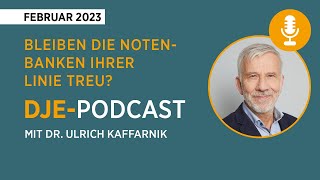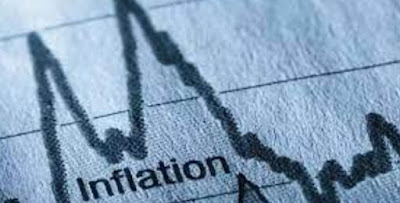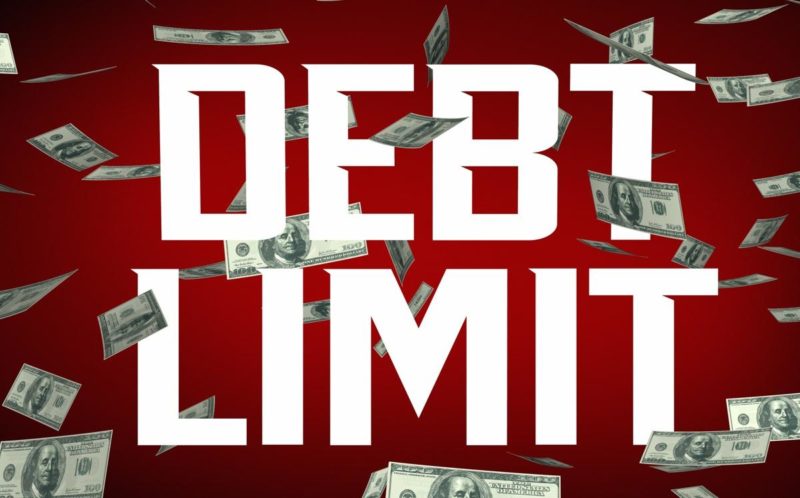Found 1,381 search results for keyword: label
When Military Strategy Ignores Economics: The Sad Story of Rear Admiral Alfred Thayer Mahan
It is a great tragedy that many modern military leaders and strategists do not understand economics. If they did, I suspect that there would be a lot less war, a lot less military spending, and a lot less wastefulness. Certainly, there would be greater awareness of the appalling human and economic costs of war in a capitalist age.
Ludwig von Mises, the great Austrian economist, understood this point well. In his 1927 book Liberalism, he noted that...
Read More »
Read More »
The Impossibility of Equality
[Excerpt from chapter 7 of Power and Market in Man, Economy, and State with Power and Market, pp. 1308–12.]
Probably the most common ethical criticism of the market economy is that it fails to achieve the goal of equality. Equality has been championed on various “economic” grounds, such as minimum social sacrifice or the diminishing marginal utility of money (see the chapter on taxation above). But in recent years economists have recognized that...
Read More »
Read More »
The Nationalization of Credit?
Arthur Travers-Borgstroem, a Finnish writer, published a book entitled Mutualism that deals with ideas of social reform, and culminates in a plea for the nationalization of credit. A German edition appeared in 1923. In 1917, the author had established a foundation under his name in Berne, Switzerland, whose primary objective was the conferring of prizes for writings on the nationalization of credit. The panel of judges consisted of Professors...
Read More »
Read More »
Jeremy Bentham: From Laissez-Faire to Statism
[An Austrian Perspective on the History of Economic Thought (1995)]
Jeremy Bentham (1748–1832) began as a devoted Smithian but more consistently attached to laissez-faire. During his relatively brief span of interest in economics, he became more and more statist. His intensified statism was merely one aspect of his major — and highly unfortunate — contribution to economics: his consistent philosophical utilitarianism. This contribution, which...
Read More »
Read More »
Making Nonsense from Sense: Debunking Neo-Calvinist Economic Thought
A few years ago I wrote about some of the errors made by economists who try to apply what they believe are Christian principles to both Austrian and neoclassical economic analysis. These economists believe that the standard economic way of thinking is not only fatally flawed but actually immoral, and that an entire new paradigm must be brought to economics.
In the mid-1990s, I taught economics as an adjunct at a Christian college near Chattanooga,...
Read More »
Read More »
No, Red State Economies Don’t Depend on a “Gravy Train” from Blue States
When Congresswoman Marjorie Taylor Greene called (again) for "national divorce" this week, a common retort among her detractors on Twitter was to claim that so-called red states are heavily dependent on so-called blue states to pay for pretty much everything. Reporter Molly Knight claimed, for example, that "Red states get their money for roads and cops and schools from blue states. You cut off that gravy train and you e [sic] got a...
Read More »
Read More »
Ludwig von Mises’s Monetary Theory in Light of Modern Monetary Thought
Ludwig von Mises's contributions to the development of the technical methods and apparatus of monetary theory continue to be neglected today, despite the fact that Mises succeeded exactly eight decades ago, while barely out of his twenties, in a task that still admittedly defies the best efforts of the most eminent of modern monetary theorists, viz., integrating monetary and value theory. Such a unified and truly "general theory" is...
Read More »
Read More »
Swiss banks accused of hiding data behind secrecy laws
Swiss banking secrecy used to be the bane of foreign countries trying to catch tax cheats. Now it’s the turn of Swiss journalists and historians to cry foul of laws that can hinder their work.
Read More »
Read More »
Bleiben die Notenbanken ihrer Linie treu? – Podcast mit Dr. Ulrich Kaffarnik
Sowohl die #EZB als auch die US-Notenbank Fed mussten sich 2022 der gestiegenen Inflation in den Weg stellen und versuchen auch weiterhin durch Straffung der monetären Politik (#Zinserhöhungen, eingestellte bzw. reduzierte Anleihenkaufprogramme) eine Normalisierung zu erreichen. Womöglich zum Preis einer starken Konjunkturschwächung. Ob bzw. wie lange die Notenbanken ihrer Linie treu bleiben, oder doch zugunsten der wirtschaftlichen Entwicklung...
Read More »
Read More »
How Government Spending Hurts the Economy
[In this chapter from Man, Economy, and State, Murray Rothbard explains how government employees consume productive resources, while both taxes and government spending distort the economy.]
For years, writers on public finance have been searching for the “neutral tax,” i.e., for that system of taxes which would keep the free market intact. The object of this search is altogether chimerical. For example, economists have often sought uniformity of...
Read More »
Read More »
Wo steht Deutschland? – DJE-plusNews Februar 2023
In dem monatlich stattfindendem DJE-plusNews reflektiert Mario Künzel, Referent Investmentstrategie mit Philipp Stumpfegger, Fondsmanager des DJE – Mittelstand & Innovation die Marktgeschehnisse der vergangenen vier Kalenderwochen und gibt Ihnen einen Ausblick auf die kommenden Wochen.
HINWEIS:
Sehr geehrte YouTube-Besucher, wir möchten uns aufrichtig für die schlechte Videoqualität entschuldigen. Leider hatten wir technische Schwierigkeiten...
Read More »
Read More »
Dr. Jens Ehrhardt im Interview mit Bernd Heller: Wie Anleger nun den Notenbanken trotzen
Börsenexperte Dr. Jens Ehrhardt denkt, dass die #Börsen bislang zu positiv ins Jahr gestartet sind. Er erklärt, warum er ab jetzt mit sinkenden #Aktien rechnet und was #Anleger tun sollten. Außerdem verrät er, warum er wegen den #Notenbanken bärisch ist, wie es für die #Zinsen und beim Thema #Künstlicheintelligenz an den Märkten aussieht.
0:00 - Intro
00:42 - Doch kein schwieriges erstes Quartal?
09:54 - Finger weg von Aktien?
16:53 - Wird...
Read More »
Read More »
Dollar and Rates Soften a Little Ahead of US CPI
The focus is on the US CPI report today, but the price action is anything but intuitive. Although the revisions of the basket and methodological changes reinforce expectations for the largest rise in three months, the US dollar continues to trade heavily after rallying last week. The dollar-bloc currencies are underperforming today. And US rates are softer. The US 2- and 10-year yields are 1-2 bp lower.
Read More »
Read More »
The Alien Invasion of America
The aliens are coming! The aliens are coming! No, I’m not talking about illegal aliens — that is, those immigrants who are trying to enter the United States without official permission. I’m talking about real aliens — the scary types from outer space. You know, the ones that look like ET.
Read More »
Read More »
Switzerland’s ‘cash initiative’ – what’s at stake?
Swiss citizens look set to vote on a people’s initiative to try to ensure their economy never becomes cashless. What do the campaigners behind the idea really want?
Read More »
Read More »
Three Reasons Why Secession and Decentralization Are Better for Human Rights
[This article is the Introduction to Breaking Away: The Case of Secession, Radical Decentralization, and Smaller Polities.]
The world is now, and has always been, politically decentralized. At no time in history has all of humankind been ruled by a single political regime. Although the Roman Empire claimed to be universal, the Romans never even conquered all of Europe, let alone the whole inhabited world. Roman power never extended to India,...
Read More »
Read More »
Where did it all go wrong for Credit Suisse?
Widespread analysis of what went wrong at Credit Suisse converges on a constant theme: an international bank that lost touch with its Swiss roots, led by people who put profits ahead of prudence.
Read More »
Read More »
Webkonferenz Februar 2023 mit Dr. Jan Ehrhardt und Stefan Breintner
#Dividenden, #Value und #Zinsen - worauf Anleger 2023 achten müssen
Nach einem schwierigen Jahr an den Kapitalmärkten 2022 sieht Dr. Jan Ehrhardt, stellv. Vorstandsvorsitzender der DJE Kapital AG, einige Chancen: Chinas Abkehr von der strikten Null-Covid-Politik eröffnet neue Aussichten, und mit inzwischen wieder attraktiver Verzinsung bei nicht allzu langen Laufzeiten rücken Anleihen wieder in den Fokus - ebenso wie Dividenden.
In der...
Read More »
Read More »
Zinsen, Anleihen und neue Perspektiven: Podcast mit Peter Lechner
Nach einem katastrophalen Jahr 2022 sind Anleihen aktuell wieder im Fokus. Das hängt logischerweise stark mit den steigenden Zinsen zusammen.
Im aktuellen DJE Podcast spricht Anleihen-Fondsmanager Peter Lechner über die aktuelle Lage am Anleihemarkt, die Qualitätskriterien in der Auswahl von Bonds und gibt einen Ausblick zur weiteren möglichen Entwicklung im Jahresverlauf.
#anleihen #zinsen #perspektive
► Webseite: https://www.dje.de
► Podcast:...
Read More »
Read More »
Yes, the US Government Has Defaulted Before
The regime is trying to whip up maximum hysteria or the chances that the US government could default on its debts if the debt ceiling is not raised. Anyone whose been paying attention for a while, however, knows there's a 99.99 percent chance that the parties involved will soon raise the debt ceiling and the US will go back to adding to its $30-trillion-plus debt hoard as usual.
Read More »
Read More »































